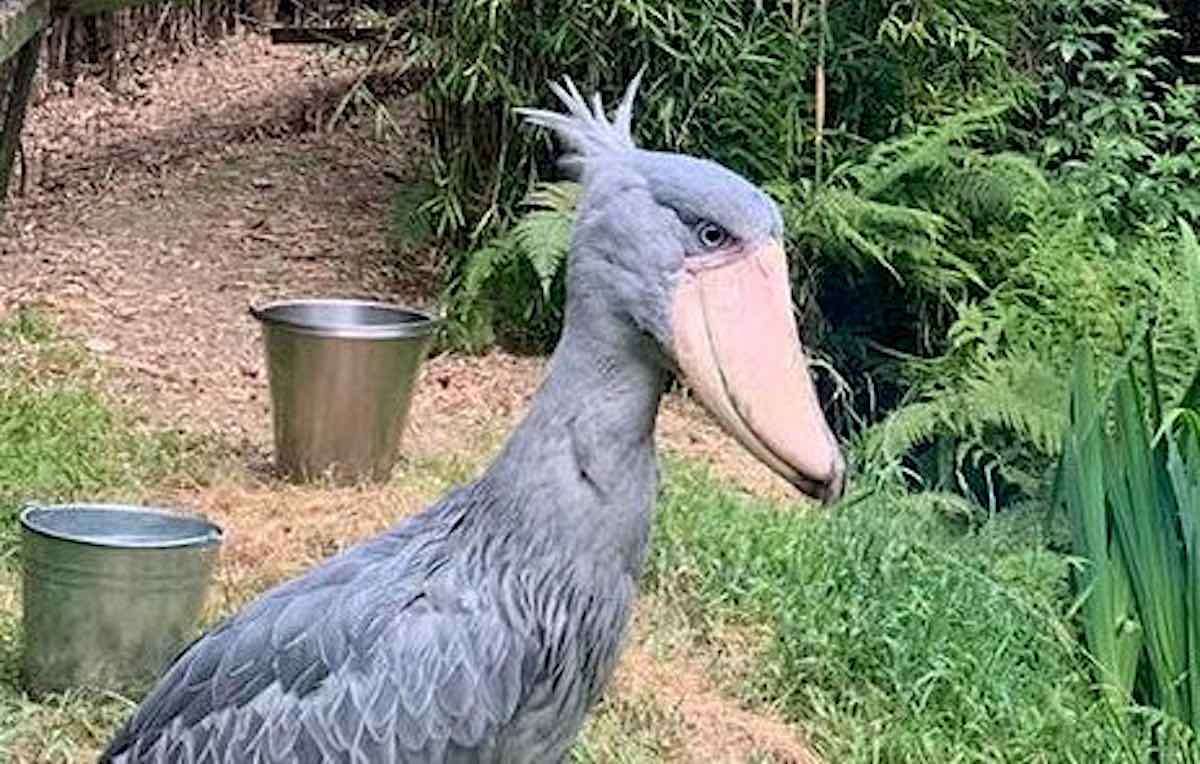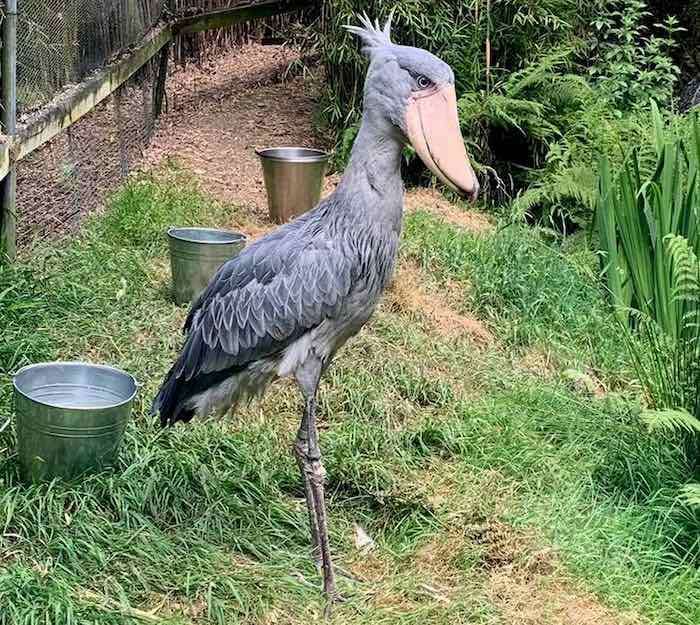Watch These Fascinating Toads That Can Jump Like Champs but Can't Land on Their Tiny Feet
Scientists have found that this species of toadlet have the smallest ear canals of any adult vertebrate, impeding coordination.

An extremely rare ‘dinosaur' bird, the only one of its kind in the UK, is patiently awaiting a new mate while the Exmoor Zoo sets out to help save the shoebill species.
She recently arrived from the Pairi Daiza Zoo in Belgium where she was a newborn star in their international breeding program.
The unique-looking bird is one of only eleven shoebills that are currently in captivity around the world.
One of the reasons the species is under threat is because the birds are monogamous and normally rear only one chick. Also, climate change is affecting the population-with around 5,000 left in the wild.
Meanwhile, the 14-year-old bird called Abou has been greeting her keepers with displays of bowing and spreading her wings-a common courtship ritual.
But she'll have to wait until the breeding program produces a male, so the pair can be matched and produce much-hoped-for offspring.
Exmoor Zoo Curator Derek Gibson, is beyond delighted to be in the same vicinity as one of these birds.

"She is magnificent to behold…and if we can keep her well and she thrives – when a male does become available, then he will also come and join us at Exmoor Zoo."
Weighing 12 pounds, Abou is 4-foot-tall (1.2m) and has a wing span double that.
Also known as whale heads, shoebills have one of the largest and most unusual bills in the birding kingdom, and live in the marsh lands of East Africa, where they hunt fish and small invertebrates.
Derek says he has been waiting 40 years for the 'amazing moment' when he finally got to see a shoebill 'in the feather'.
"In reality, I've never been in a position to see these amazing birds in the wild."
"They live in countries in central and eastern Africa-like Uganda, Zambia, Tanzania-which are prone to extended periods of drought, so there is a huge intensity on animals and people who are having to compete for the same environment."
"These birds do have their work cut out for them, which is why it is so important to offer Abou a home and put ourselves forwards to try and do our bit."
"They have a life expectancy of 35 years-so our Abou is still a teenager, and we love her very much."
FLY This Gorgeous Good News to Friends By Sharing on Social Media…
Be the first to comment